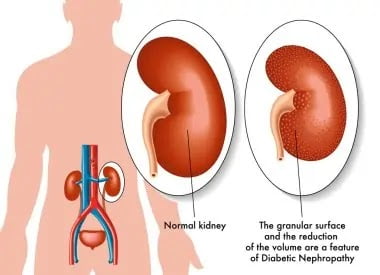Memory supplements are products that claim to enhance cognitive function, improve memory, or prevent or delay memory loss. They are marketed to people who want to boost their brainpower, as well as to older adults who are concerned about dementia or Alzheimer’s disease. But do these memory supplements really work, or are they just a waste of money and potentially harmful to your health?
The Evidence for Memory Supplements
Memory supplements often contain ingredients that have been linked to brain health in some way, such as omega-3 fatty acids, B vitamins, vitamin E, ginkgo biloba, and others. However, the evidence for their effectiveness is weak, inconsistent, or nonexistent.
Omega-3 Fatty Acids
Omega-3 fatty acids are a type of healthy fats that are important for several body functions, including heart health and brain development. They are found in fatty fish, shellfish, and plant sources like walnuts and flaxseed. Some studies have suggested that higher blood levels of omega-3 fatty acids may be associated with a lower risk of dementia or cognitive decline. However, other studies have found no such association or even a higher risk of dementia in people with high omega-3 intake. Moreover, taking omega-3 supplements has not been shown to improve memory or cognitive function in healthy older adults, or to prevent or slow down the progression of dementia in people who already have it.
B Vitamins
B vitamins are essential for many metabolic processes in the body, including the production of neurotransmitters and the maintenance of nerve cells. Some of the B vitamins that have been studied for their role in brain health are B6, B9 (folate), and B12. Deficiencies in these vitamins can cause neurological problems, such as anemia, confusion, and memory loss. However, most people get enough B vitamins from their diet, and taking B vitamin supplements has not been proven to improve memory or cognitive function in healthy older adults, or to prevent or delay dementia. In fact, some studies have suggested that high doses of B vitamins may increase the risk of cognitive impairment or stroke.
Vitamin E
Vitamin E is an antioxidant that protects the cells from oxidative stress and inflammation, which can damage the brain and contribute to cognitive decline. Vitamin E is found in foods like vegetable oils, nuts, seeds, and leafy greens. Some studies have indicated that people who eat a diet rich in vitamin E may have a lower risk of developing dementia, or that taking vitamin E supplements may slow down the rate of cognitive decline in people who already have dementia. However, other studies have found no benefit of vitamin E for memory or cognition, or even a higher risk of mortality or hemorrhagic stroke in people who take high doses of vitamin E supplements.
Ginkgo Biloba
Ginkgo biloba is a herb that has been used for centuries in traditional Chinese medicine for various ailments, including memory loss and cognitive impairment. It is believed to work by improving blood flow to the brain and protecting the brain cells from oxidative stress. Ginkgo biloba is one of the most popular memory supplements on the market, but the evidence for its effectiveness is weak and contradictory. Some studies have shown that ginkgo biloba may improve memory or cognitive function in healthy older adults, or in people with mild cognitive impairment or dementia. However, other studies have found no benefit of ginkgo biloba for memory or cognition, or even a higher risk of bleeding or seizures in people who take ginkgo biloba supplements.
The Risks of Memory Supplements
Memory supplements are not regulated by the Food and Drug Administration (FDA), which means that their safety, quality, and efficacy are not guaranteed. Memory supplements may contain ingredients that are not listed on the label, or that may interact with other medications or supplements that you are taking. Memory supplements may also have side effects, such as nausea, headache, insomnia, or allergic reactions. Some memory supplements may even be harmful to your health, such as those that contain high doses of vitamin E or B vitamins, or those that contain contaminants or adulterants.
The Bottom Line
Memory supplements are not a magic bullet for improving your memory or preventing dementia. There is little or no scientific evidence that memory supplements work, and some of them may even be dangerous to your health. The best way to protect your brain and memory is to follow a healthy lifestyle that includes eating a balanced diet, exercising regularly, getting enough sleep, managing stress, and staying mentally and socially active. If you are concerned about your memory or cognitive function, talk to your doctor before taking any memory supplements, and get evaluated for any underlying medical conditions that may affect your brain health.
Conclusion
Memory supplements are products that claim to enhance cognitive function, improve memory, or prevent or delay memory loss. However, there is little or no scientific evidence that memory supplements work, and some of them may even be dangerous to your health. The best way to protect your brain and memory is to follow a healthy lifestyle that includes eating a balanced diet, exercising regularly, getting enough sleep, managing stress, and staying mentally and socially active. If you are concerned about your memory or cognitive function, talk to your doctor before taking any memory supplements, and get evaluated for any underlying medical conditions that may affect your brain health.
FAQs
Q: What are some examples of memory supplements?
A: Memory supplements are products that contain ingredients that have been linked to brain health in some way, such as omega-3 fatty acids, B vitamins, vitamin E, ginkgo biloba, and others. However, the evidence for their effectiveness is weak, inconsistent, or nonexistent.
Q: How do memory supplements work?
A: Memory supplements are supposed to work by improving blood flow to the brain, protecting the brain cells from oxidative stress and inflammation, or enhancing the production or function of neurotransmitters and nerve cells. However, these mechanisms have not been proven to improve memory or cognitive function in humans.
Q: Are memory supplements safe?
A: Memory supplements are not regulated by the Food and Drug Administration (FDA), which means that their safety, quality, and efficacy are not guaranteed. Memory supplements may contain ingredients that are not listed on the label, or that may interact with other medications or supplements that you are taking. Memory supplements may also have side effects, such as nausea, headache, insomnia, or allergic reactions. Some memory supplements may even be harmful to your health, such as those that contain high doses of vitamin E or B vitamins, or those that contain contaminants or adulterants.
Q: Who should take memory supplements?
A: Memory supplements are marketed to people who want to boost their brainpower, as well as to older adults who are concerned about dementia or Alzheimer’s disease. However, memory supplements are not a magic bullet for improving your memory or preventing dementia. There is no conclusive evidence that memory supplements work for healthy older adults, or for people who have mild cognitive impairment or dementia. In fact, some memory supplements may increase the risk of cognitive impairment or stroke in some people.
Q: What are some alternatives to memory supplements?
A: The best way to protect your brain and memory is to follow a healthy lifestyle that includes eating a balanced diet, exercising regularly, getting enough sleep, managing stress, and staying mentally and socially active. These habits can help prevent or delay cognitive decline, and may also reduce the risk of dementia or Alzheimer’s disease. If you are concerned about your memory or cognitive function, talk to your doctor before taking any memory supplements, and get evaluated for any underlying medical conditions that may affect your brain health.




